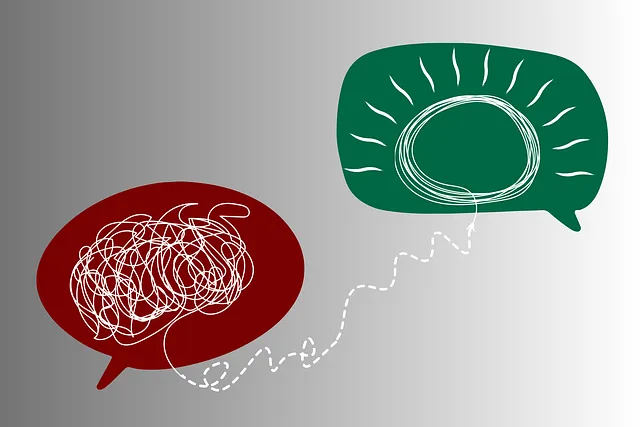The stigma around mental illness prevents many from seeking crucial help, such as that offered by Kaiser's Arvada unit. This leads to prolonged suffering and worse conditions due to internalized shame. To combat this, advocates push for destigmatization through policy changes, community education, and open conversations about mental wellness, creating a supportive environment where individuals feel empowered to prioritize their mental health. Kaiser's Arvada facility is a step in this direction, utilizing community outreach, healthcare provider training, and mindfulness practices to enhance patient experiences and outcomes, demonstrating its commitment to inpatient mental health services and inner strength development.
Mental illness stigma remains a significant barrier to individuals seeking help. This article delves into the pervasive impact of stigma on mental health-seeking behaviors, highlighting its effect on diagnosis and treatment. We explore successful initiatives like Kaiser’s inpatient mental health services in Arvada as promising steps towards reduction. Furthermore, we provide strategies for effective stigma reduction within communities and healthcare settings, focusing on accessible support and education to foster understanding and acceptance. Discover how these efforts contribute to a more inclusive approach to mental wellness, including insights into Kaiser’s role in Arvada.
- Understanding Stigma: Its Impact on Mental Health Seeking Behavior
- Kaiser's Inpatient Mental Health Services in Arvada: A Step Towards Reduction
- Strategies for Effective Stigma Reduction in the Community and Healthcare Settings
Understanding Stigma: Its Impact on Mental Health Seeking Behavior

Stigma surrounding mental illness can profoundly impact an individual’s willingness to seek help, which is why understanding its effects is crucial. Many individuals with mental health challenges may avoid pursuing treatment due to fear of judgment or societal ostracization. This internalized shame and external discrimination create a barrier to accessing vital services, such as those offered by facilities like Kaiser’s inpatient mental health unit in Arvada. The consequences are severe, leading to prolonged suffering and potentially worsening conditions.
Mental health advocates emphasize that reducing stigma is essential for improving emotional regulation and overall well-being. This involves challenging societal norms through policy analysis and advocacy, educating communities about mental illness, and promoting techniques that foster open conversations about emotional experiences. By addressing stigma at its root, society can create an environment where individuals feel empowered to prioritize their mental health without hesitation.
Kaiser's Inpatient Mental Health Services in Arvada: A Step Towards Reduction

Kaiser’s Inpatient Mental Health Services in Arvada represent a significant step forward in the global effort to reduce mental illness stigma. By providing dedicated and accessible inpatient care, Kaiser aims to destigmatize mental health issues and foster open conversations around mental wellness. This initiative supports the broader goal of Mental Health Awareness by ensuring that individuals in need have access to comprehensive treatment options without fear of judgment or embarrassment.
The availability of these services in Arvada underscores Kaiser’s commitment to Inner Strength Development, empowering individuals to take charge of their mental health and well-being. By offering specialized care in a supportive environment, Kaiser encourages those struggling with mental illness to seek help, promoting overall community mental wellness and reducing the impact of stigma on affected individuals’ lives.
Strategies for Effective Stigma Reduction in the Community and Healthcare Settings

Reducing stigma around mental illness is a multifaceted approach that requires concerted efforts from communities and healthcare providers alike. One effective strategy in both settings is Community Outreach Program Implementation. These programs, often led by mental health advocates or peer supporters, can educate community members about the realities of mental illness, dispel myths, and foster empathy. Engaging with schools, faith groups, and local businesses ensures a broad reach, creating an environment where individuals feel supported and less likely to internalize negative stereotypes.
Additionally, Healthcare Provider Cultural Competency Training plays a vital role in stigma reduction. Mental health professionals equipped with this training can offer sensitive, non-judgmental care, thereby encouraging individuals to seek help without fear of further discrimination. Incorporating practices like Mindfulness Meditation into therapeutic frameworks can also promote self-compassion and challenge societal pressures, contributing to a more positive mental health narrative within the community. Services like those offered by Kaiser’s inpatient mental health facility in Arvada benefit from these strategies, ultimately enhancing patient experiences and outcomes.
Mental illness stigma remains a significant barrier to treatment, but efforts like Kaiser’s inpatient mental health services in Arvada offer promising steps forward. By combining community outreach, education, and accessible healthcare options, we can continue to reduce stigma and foster more open conversations around mental health. Strategies for effective reduction, as discussed, are key to creating an inclusive environment where individuals feel comfortable seeking help without fear of judgment or discrimination. In light of these initiatives, it’s crucial that we collectively advocate for further resources and policies that support those living with mental illness.






